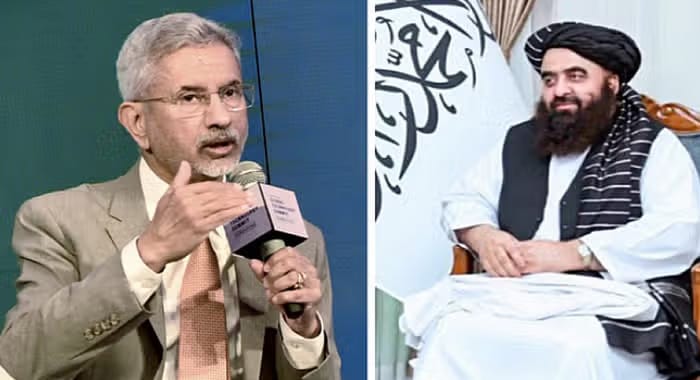Afghanistan’s Taliban-led government appears increasingly uncertain about its direction, caught in the web of India’s post-defeat maneuvers aimed at undermining Pakistan. In the aftermath of India’s humiliation on May 10, questions continue to swirl around the unverified assault in Kashmir’s idyllic Pahalgam, where confusion reigns over who could have orchestrated the attack—besides the Indian establishment itself—and what any external actor could possibly gain from it.
As India reels from military embarrassment, having lost not only billions in equipment but also the confidence of its people, social media platforms have become the stage for Indian citizens to voice shock and disillusionment. Their dismay stems from the realization that the very Pakistan they once dismissed as inferior has handed them a stinging defeat. Even Prime Minister Narendra Modi is facing intense pressure, with observers noting that his next move—whether a reckless military misadventure or a personal meltdown under pressure—could mark another turning point in a deepening crisis.
Still, India’s penchant for subversion remains undiminished. In the wake of its military setback, New Delhi has turned toward Kabul, attempting to ensnare the Taliban government in its anti-Pakistan strategy. The recent case of Afghan Minister of State for Interior Affairs Ibrahim Sadr’s medical visit to India was exploited by Indian media and establishment figures in an attempt to project regional leverage and provoke Pakistan. However, Pakistani authorities, fully informed of the circumstances—Sadr’s intended treatment in Pakistan, the subsequent denial of entry due to the closure of the Torkham border, and his alternative travel to India with four companions—have treated the episode with calm indifference.
India’s foreign policy architects, including Minister S. Jaishankar, attempted to showcase their diplomatic links with Taliban Foreign Minister Amir Khan Muttaqi as a strategic coup. Yet, in a post-May 10 context, Pakistan remains undeterred, with morale across military and diplomatic fronts surging. The Afghan Taliban’s official condemnation of the Pahalgam incident was noted, but their silence over the martyrdom of Pakistani Muslims in Indian strikes and their unwillingness to comment on India’s self-comparison with Israel in the regional conflict reflect an awkward hesitancy.
Caught between regional loyalties and international opportunism, the Afghan Taliban are struggling to define their stance. Their silence has not gone unnoticed. In Pakistan, religious groups and organizations that once championed the Taliban are now beginning to question their support. India’s recent bombings on Afghan soil targeting pro-Taliban elements—met with deafening silence from Kabul—have shaken these groups. The lack of response from those they once defended has left them stunned and introspective.
In the aftermath, a shift is underway. Influential religious scholars and organizations in Pakistan, once vocal in advocating for the Taliban, are now reconsidering their position. The emotional and political capital invested in Taliban solidarity may no longer be sustainable. As these actors grapple with betrayal and disillusionment, their future demands on the Pakistani state for support to Afghanistan’s Taliban may fall on deaf ears—if they even find the courage to voice them.
India may have hoped to win the psychological war it lost on the battlefield by dragging Afghanistan into its orbit, but it seems that, once again, its subversive efforts have backfired. In the grand regional game, Pakistan remains steadfast, while Afghanistan’s Taliban risk losing far more than they may yet realize.





